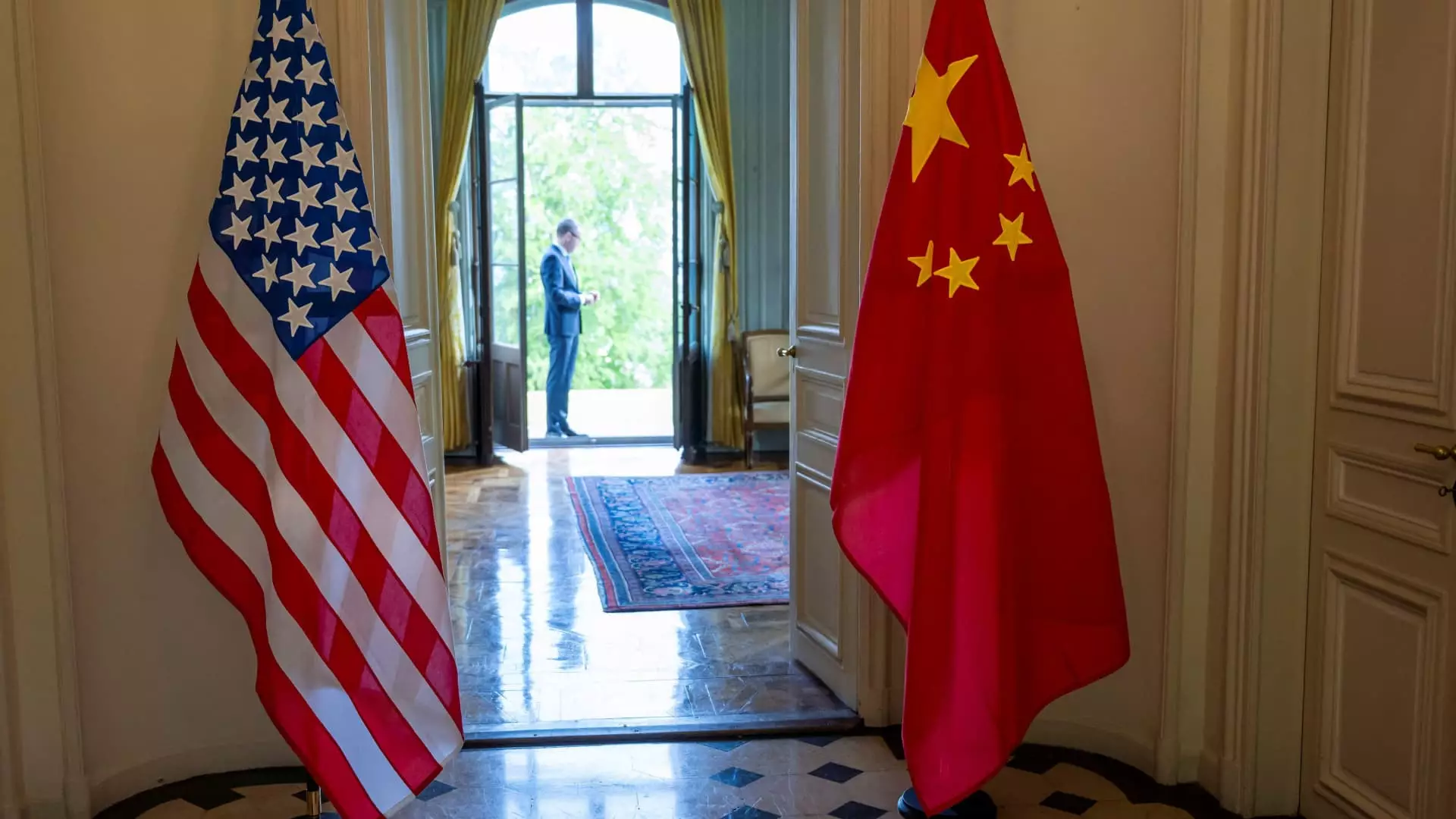The trade talks between the United States and China have reached a perplexing standstill, a troubling indicator of the times. Treasury Secretary Scott Bessent’s remarks, made during a time when economic relations are strained, signal a concerning trajectory. While he expressed optimism about future conversations, including the potential for a direct call between President Trump and President Xi Jinping, this sentiment feels more like a hopeful wish than a tangible strategy. The reality is that the intricate web of tariffs and technological restrictions has created a chasm that mere words may not easily cross.
Bessent’s allusion to a past breakthrough in Switzerland juxtaposed with the current state of affairs paints a contradictory picture. The temporary halt on tariffs was heralded as a victory, yet it seems to have only postponed the inevitable clash of interests. Diplomacy can be a delicate dance; however, it has become clear that the two nations are not merely navigating a few missteps but are instead stumbling through a complex minefield of distrust and miscommunication.
Technological Tension
At the heart of the U.S.-China tension lies the clashing ideologies surrounding technology and national security. The Biden administration’s approach, characterized by increased technological restrictions on Chinese firms, has only deepened the ideological divide. China’s response has been equally firm, highlighted by statements from Commerce Ministry spokesperson He Yongqian, who urged the U.S. to rectify its “wrong practices.” The language used by both nations has shifted from negotiation to confrontation, as China seeks to uphold its sovereignty amidst perceived attacks on its technological aspirations.
The complexities of chip export controls are particularly illustrative of this friction, as they directly impact both military and civilian sectors. This dual-use dilemma reveals the extent to which economic leadership is intertwined with security considerations. China’s insistence on adhering to “international practice” while emphasizing its role in maintaining global peace raises questions about the effectiveness of current diplomatic strategies.
Status Quo or STAGFLATION?
Even as both parties express a desire for dialogue, the U.S. administration’s announcement regarding the revocation of visas for Chinese students could be interpreted as an insidious move to maintain a status quo characterized by mutual isolation. Such actions stand to alienate young minds who have traditionally served as bridges for cultural and technological exchange. At a time when global cooperation is necessary, this unilateral decision demonstrates a growing trend towards a protectionist and isolationist stance that must be critically questioned.
From a center-left liberal viewpoint, the revocation of these visas resonates poorly. It actively contributes to the fracturing of intellectual and educational ties that have historically benefited both nations. The implications are severe; stifling the inflow of talent not only hampers cross-cultural understanding but also diminishes innovation opportunities for both countries. For a trade relationship as critical as that between the U.S. and China, the current trajectory appears counterintuitive at best, and dangerously shortsighted at worst.
The Illusion of Stability
The façade of stability that both leaders attempt to project is increasingly at odds with the undercurrents of resentment and anxiety felt by each country’s populace. This tug-of-war not only fosters dread but heightens the stakes for citizens who depend on stable trade relations for their livelihoods. The essence of this conflict boils down to an identity crisis: Who will lead in global markets, and what costs are we willing to pay to find out?
In this context, it becomes evident that any negotiations must go beyond simple tariff rollbacks or trade agreements. Genuine dialogue cannot afford to be merely performative, lacking the depth and seriousness required for long-term impact. For both nations, leadership must be redefined from a position of dominance to one advocating for cooperative engagement and shared solutions amidst an increasingly multipolar world.
A Call for Rational Diplomacy
As we navigate the unpredictable waters of U.S.-China relations, it is imperative that all leaders recognize the benefits of collaboration over enmity. The art of diplomacy demands patience, nuance, and most importantly, the will to listen. Both Bessent’s assertions for future talks and insights from Chinese officials should not merely be treated as routine dialogue; they should serve as a blueprint for a more cooperative framework. The dangers of stagnation in diplomatic efforts cannot be overstated, as they threaten not just trade but the very fabric of international relations. Only through reasonable engagement can both powers hope to steer clear of further escalation and find a sustainable path forward.

Leave a Reply